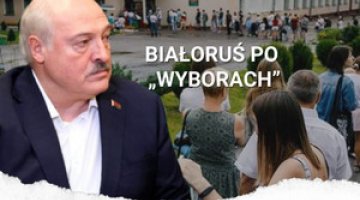The Belarusian regime releases 52 political prisoners – Lukashenka is playing a game with the US
On 11 September in Minsk, Alyaksandr Lukashenka hosted John Coale, the US President’s special envoy, and Christopher Smith, Deputy Assistant Secretary of State for Eastern European Affairs. Representatives of the Belarusian side alongside the authoritarian leader included KGB chief Ivan Tertel and Belarus’s Permanent Representative to the United Nations, Valentin Rybakou. Following the talks, Coale announced that Donald Trump had personally decided to lift sanctions on Belarusian airline Belavia. He also stated that the United States would seek to normalise relations, including sending an American ambassador to Minsk in the near future.
In response, Lukashenka authorised the release and transfer to Lithuania of 52 political prisoners, including former presidential candidate Mikalai Statkevich (who refused to go into exile and was subsequently detained by the KGB). Among those released were three Polish nationals. The regime in Minsk declared continued support for the Trump administration’s ‘peaceful policy’ and has presented its contacts with the United States as evidence of a foreign policy successfully breaking Western isolation.
Lukashenka’s latest meeting with a senior US official – in June, President Trump’s adviser on Ukraine, General Keith Kellogg, visited Minsk – serves as a pretext for the autocratic ruler to claim that he has effectively overcome international isolation. The regime will play up the significance of its ties with Washington in the hope of shifting perceptions among European states, including Poland, which continue to isolate Belarus.
Commentary
- Coale’s second visit to Minsk confirms that Lukashenka is pursuing a transactional policy towards the United States by offering the gradual release of political prisoners in exchange for easing the sanctions regime. However, this will not lead to a reduction in domestic repression or any change in the nature of the regime. More than 1,100 people imprisoned for anti-regime activity remain behind bars in Belarus. Arrests continue as well – on 12 September alone, nine more individuals were added to the list of political prisoners.
- Minsk’s primary economic objective is the lifting of US sanctions on the export of potash fertilisers. This would be most profitable if Lithuania were to permit the use of the port in Klaipėda. At present, this appears unlikely – Prime Minister Inga Ruginienė has stated that despite potential pressure to reconsider restrictions on Belarus, including the lifting of transit-related limits on potash fertilisers, Vilnius will remain firm. Foreign Minister Kęstutis Budrys echoed this stance, declaring that lifting the sanctions is out of the question.
- The lifting of restrictions on Belavia will not improve the overall state of the Belarusian economy. It will likely only allow for the resumption of deliveries of US-made spare parts needed to service Boeing and Embraer aircraft. There is a risk that some of these components could be diverted to Russia, which continues to seek ways to circumvent sanctions. A resumption of direct flights between Belarus and the United States is unlikely, owing in part to the technical limitations of the Belarusian carrier and the ongoing restrictions imposed by the EU.
- The thaw in relations between Belarus and the United States has not caused concern in Russia and has prompted no response from the Kremlin. This suggests that media claims about Lukashenka seeking to reduce his dependency on Russia are not credible. The same applies to military cooperation. Coale’s visit took place on the eve of the Zapad-2025 exercises, which are based on a scenario involving conflict with NATO, yet neither side indicated that the regional military situation was discussed.
- On the propaganda front, Minsk is overstating the significance of its contacts with Trump. The minor concession on US sanctions is being portrayed as a foreign policy success for the regime and a key step towards Lukashenka’s international rehabilitation. It cannot be ruled out that his ambitions include positioning himself as a potential host for future talks on resolving the Russia–Ukraine conflict. This aligns with a well-established pattern in Belarusian foreign policy, which presents Minsk as willing to balance between Moscow and the West.





